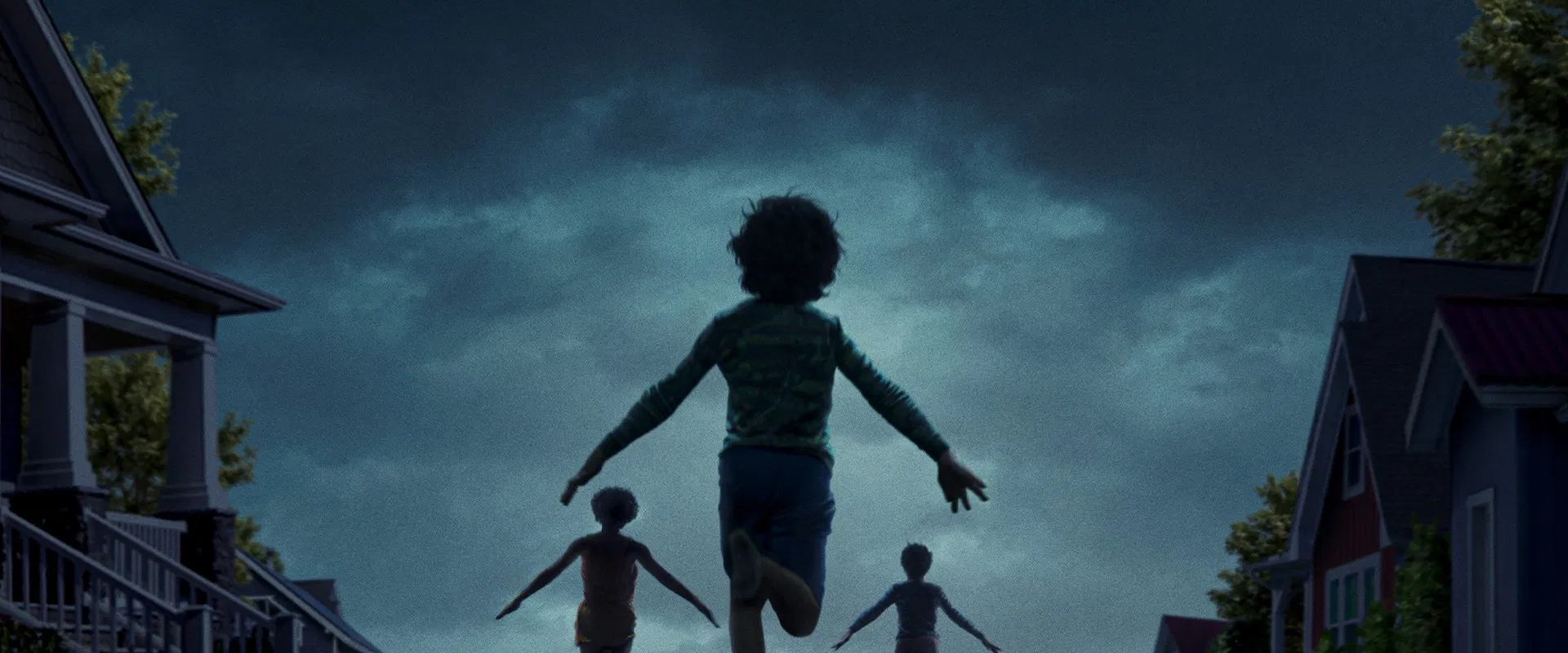Let’s get this out of the way: horror films and I have never been the warmest of friends. It’s a genre that all too often ladles on the shocks and eviscerates nuance, leaving little more than entrails, big dumb jump scares, and—if you’re lucky—a whiff of atmosphere. But Zach Cregger’s Weapons isn’t just another blood-soaked midnight howl: it’s the most diabolically effective, ruthlessly funny, and ingeniously constructed American horror film I’ve seen in ages, splattering expectation across the screen with the same devious glee he brought to 2022’s Barbarian. If that film was a hearty wink at the genre’s conventions, Weapons is a full-throated cackle: a blissfully nasty concoction that dares you to squint at its darkness, then rewards your bravado with a punchline or a new kind of dread just when you’re catching your breath.
Cregger’s premise—a mass, inexplicable exodus of children from their beds at 2:17 a.m.—has the primal simplicity of nightmares and urban legends. The question is both childlike and chilling: what could make seventeen third-graders abandon their homes in the dead of night? From there, Weapons unspools a nesting-doll mystery, hopping from perspective to perspective, stepping into the shoes and wounds of its battered ensemble with both sympathy and a perverse sense of fun. There’s an artistry to the episodic structure: each new chapter cuts off at the moment of maximum tension, only to give another character the baton—a method that teases the audience’s nerves to a ragged thread, offering just enough answers to sharpen your hunger for more.
And what a gallery of sorrow, humor, and panic Cregger has assembled. Julia Garner is superb as Justine, the town’s “witch” not by power but by gossip and institutional cowardice. It’s a performance of raw nerves and stifled fury, her isolation radiating off the screen even as we wince at the unfairness of her persecution. Josh Brolin, granite-faced and grieving, gives Archer a wounded dignity—even as he’s creeping around doorbell cams and city maps, his anger as tremulous as his hope. Alden Ehrenreich, whose tragicomic policeman Paul achieves a strange, sad poetry, delivers two of the funniest scenes in recent memory, each involving an ill-advised hand in a pocket and a surprise needle—like a slapstick bad dream told by the Brothers Grimm.
Weapons is gleefully, fiendishly tense. Cregger’s camera is sly and patient: it lurks around the edges of the narrative, savoring those hair-raising shots of a nondescript suburban doorway, open just a crack, daring you to peer inside. The editing—just as in Barbarian—is surgical: scenes build, subside, and detonate in rhythms that make you ache and then laugh, sometimes at once. The scares are there, certainly—the kind that roll through your gut and then linger as a nervous giggle. But Cregger’s secret weapon is his tonal dexterity. Just as the tension becomes unendurable, he flashes a bit of humor or human warmth that actually makes the horror sting even deeper.
What takes Weapons beyond the typical cauldron of genre delights is its willingness to dig under the skin of American fear—the way trauma sits at the kitchen table, haunting every mundane routine. The school setting turns the mystery into a fable of national anxiety: the numbing repetition of mass tragedies, the inertia of institutions, communities swallowing their own grief rather than confronting it. Cregger is canny here: he suggests mass violence without ever reducing his characters to types or victims, and the supernatural, when it comes, is no comforting metaphor—it’s a wound, supernatural only insofar as we refuse to face what festers in plain sight.
And yet, delight abounds in the telling. The film’s cleverness isn’t a shell game meant to keep you at bay; it’s a breadcrumb trail you can’t help but follow, down into haunted basements, lonely bedrooms, and that most pitiless of enemies—the unexamined past. The nonlinear structure isn’t just a gimmick: it breathes new air into a genre that thrives on claustrophobia. Each shifting point of view reveals both more dread and more humanity; we aren’t just picking our way through a puzzle—we’re watching a community, a classroom, collapse and try to rebuild itself, one jagged piece at a time.
The ending—while I wouldn’t spoil its macabre choreography—gives us the catharsis we desperately need, twisting the film’s own blade into expectations. Rare is the horror film that can be both genuinely frightening and uproariously funny at the same time, but Weapons manages this feat with style: its final spectacle is as satisfying as it is grotesque, and Cregger’s hall-of-mirrors storytelling snaps together with the precision of a perfectly solved riddle.
Barbarian seemed like a hard act to follow, but Weapons proves that Zach Cregger isn’t simply playing in the same haunted sandbox—he’s building new architectural oddities in the middle of it, inviting you to walk inside, on the promise that no house is ever truly empty, and sometimes the things that scare us most are the ones that make us laugh hardest.
There may be more “important” films this year. There certainly won’t be one more unshakably, exhilaratingly scary. In Weapons, every open door is a dare. Go ahead: push it open. If you don’t, you’ll be missing the best American horror film of the year.


